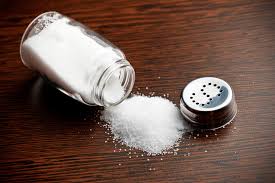
Consuming excess salt may cause gastro-intestinal bloating, reveals a latest study. For the study, the group of scientists re-analysed data from a large clinical trial-the Dietary Approaches to Stop Hypertension-Sodium trial (DASH-Sodium)-conducted two decades ago. Their findings revealed that high sodium intake increased bloating among trial participants.
Additionally, they also found that high-fibre DASH diet increased bloating among trial participants compared to a low-fibre control diet.
The study was published in the American Journal of Gastroenterology. "Bloating is one of the leading gastrointestinal complaints in the U.S. and can be exacerbated in some people by a high-fiber diet; our results suggest that they might be able to reduce that bloating, without compromising on healthy fiber, by lowering their sodium intake," said, study senior author Noel Mueller.
Bloating is a condition characterised by build-up of excess gas in the gut.The production of gas can be attributed to gas-producing gut bacteria breaking down fibre.
The researchers said that the study is the first to examine sodium as a cause of bloating in the context of low- and high-fibre diets.
The team analyzed data from the DASH-Sodium trial, conducted at four clinical centers during 1998-99, it tested the DASH diet, a high-fibre diet,, which is relatively low in fat and high in fruits, nuts, and vegetables, against a low-fibre control diet.
The scientists tested each of the two diets at three levels of sodium, and the 412 participants all had high blood pressure at the trial start.
The chief aim of the study was to determine the effect of dietary sodium and other factors on blood pressure. But they also included data on participants' reports of bloating that Mueller and colleagues analyzed for the new study.
The study revealed that prior to the trial, 36.7 per cent of the participants reported bloating, which is more or less in line with national surveys of bloating prevalence. They found too that the high-fibre DASH diet increased the risk of bloating by about 41 per cent, compared to the low-fibre control diet-and men were more susceptible to this effect, compared to women.
Sodium was a prevalent factor in bloating, the scientists revealed. When they combined data from the DASH and control diets and compared the highest level of sodium intake to the lowest, it was found that the high-sodium versions of those diets collectively increased the risk of bloating by about 27 per cent compared to the low-sodium versions.
The researchers said that reducing sodium can be an effective way to reduce bloating-and may even help people maintain a healthy, high-fibre diet.







